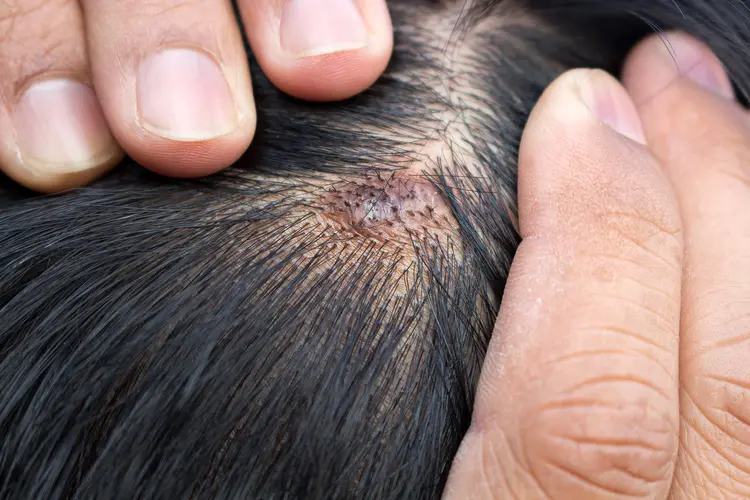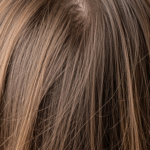If you're wondering, can herpes cause hair loss? you're not alone. Many people with herpes outbreaks experience symptoms beyond just sores, including hair loss around the affected areas. While herpes itself doesn’t directly cause permanent hair loss, the stress and inflammation it triggers can contribute to temporary shedding. In this post, we’ll explain how herpes …
If you’re wondering, can herpes cause hair loss? you’re not alone. Many people with herpes outbreaks experience symptoms beyond just sores, including hair loss around the affected areas. While herpes itself doesn’t directly cause permanent hair loss, the stress and inflammation it triggers can contribute to temporary shedding.
In this post, we’ll explain how herpes can affect your scalp and hair, discuss the connection between herpes and hair loss, and offer advice on managing and treating it. Read on to understand how to address herpes-related hair loss effectively.
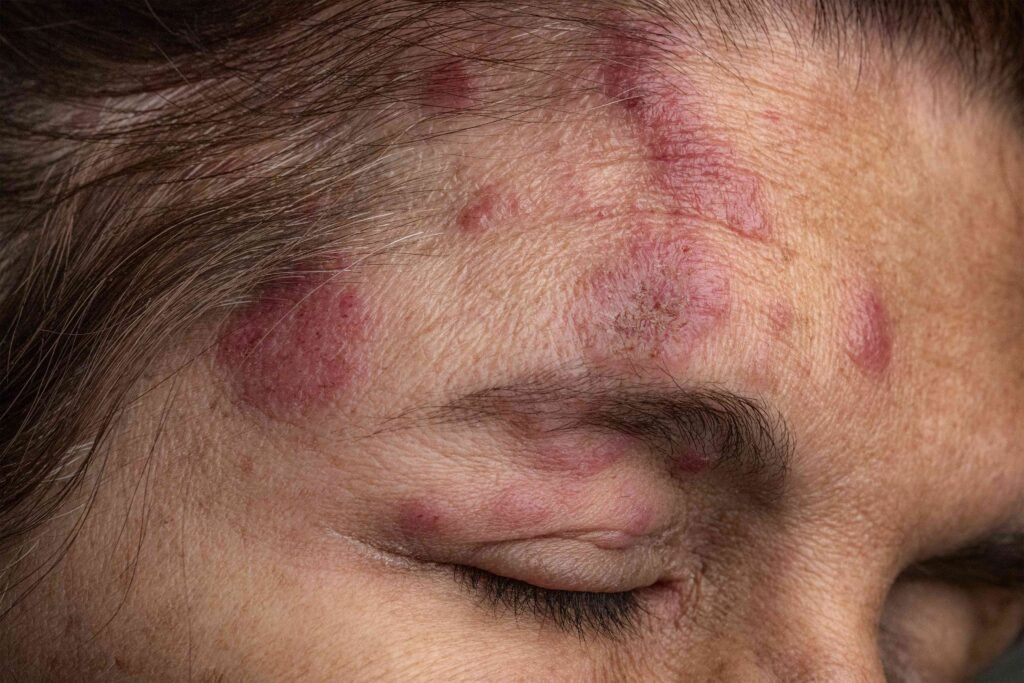
How Herpes Affects the Skin and Hair
Herpes is a viral infection caused by the herpes simplex virus (HSV). There are two main types: HSV-1 (commonly causing cold sores) and HSV-2 (typically linked to genital herpes). When a herpes outbreak occurs, it usually manifests as painful blisters on the skin or mucous membranes. But what happens when these outbreaks occur near the scalp?
Herpes outbreaks on the scalp can create sores, blisters, and inflammation, which may cause irritation to hair follicles. When the hair follicles are inflamed or injured, it can lead to temporary hair loss or thinning in the affected area.
While herpes itself does not directly damage the hair follicle in the way some other conditions might, the secondary inflammation can disrupt normal hair growth. In severe cases, if herpes blisters form along the hairline or scalp, they may result in scarring that hinders future hair regrowth.
The Connection Between Herpes and Hair Loss: What You Need to Know
When herpes outbreaks happen, your body reacts to the infection. The immune system’s inflammatory response is often one of the main contributors to hair loss. This reaction can lead to telogen effluvium, a type of hair loss where hair prematurely enters the shedding phase due to stress or illness.
The combination of the physical stress of herpes and the mental stress of dealing with an outbreak can significantly impact hair health.
Key Factors Contributing to Hair Loss:
- Scalp Inflammation: Herpes sores on the scalp can cause inflammation around the hair follicles, leading to hair shedding.
- Stress and Anxiety: The stress caused by a herpes outbreak, or the anxiety surrounding recurring episodes, can also trigger hair loss.
- Weak Immune Response: The body’s efforts to combat the virus may temporarily redirect resources, affecting hair growth and health.
How Stress from Herpes Outbreaks Can Lead to Hair Loss
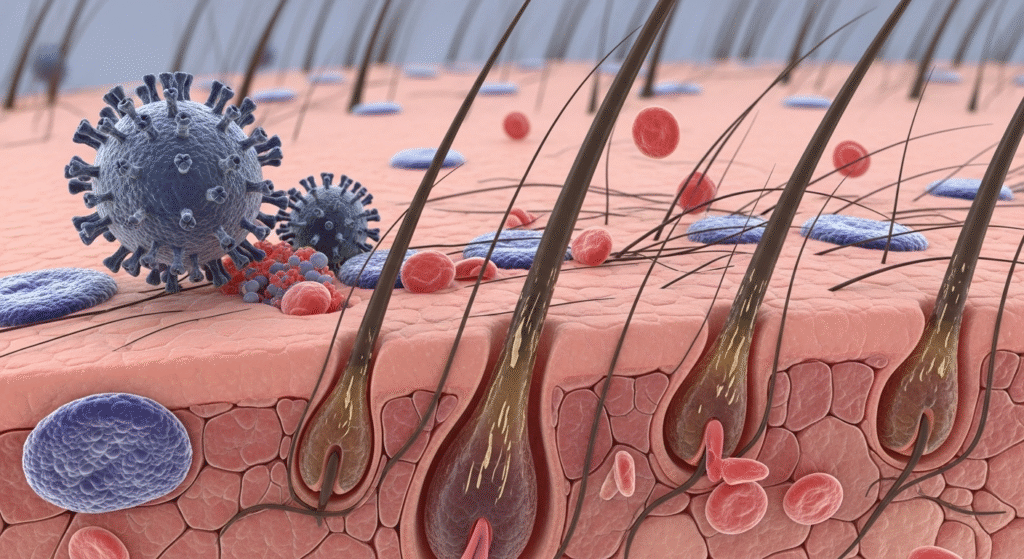
It’s well-established that stress can lead to hair loss. In fact, stress-induced hair loss, known as telogen effluvium, is one of the most common causes of temporary shedding. When your body is under physical or emotional stress, like dealing with a herpes outbreak, it may prematurely push hair follicles into the shedding phase.
During a herpes outbreak, the immune system is under attack, and your body is focused on fighting the virus. This heightened immune response can divert resources from normal hair growth, leading to hair loss in the form of thinning or patchy hair loss around the affected areas.
Additionally, people who experience frequent outbreaks may experience prolonged periods of stress, which can compound the effects on hair growth.
Diagnosing Hair Loss After a Herpes Outbreak
If you’re noticing hair loss around the areas where herpes outbreaks occur, it’s important to get a proper diagnosis. Hair loss after a herpes outbreak can be linked to several other factors, so it’s essential to differentiate it from other types of hair loss conditions, such as alopecia areata or hormonal imbalance.
Steps for Diagnosing Hair Loss Related to Herpes:
- Consult a dermatologist or healthcare professional to evaluate the pattern and cause of your hair loss.
- Examine the timing: If your hair loss happens around the same time as herpes outbreaks or healing, it could be linked to the herpes virus.
- Scalp examination: A dermatologist will look for inflammation or scarring in the scalp that may explain the hair loss.
Once diagnosed, the dermatologist may recommend specific treatments to address both the herpes outbreak and the resulting hair loss.
Treatments for Hair Loss Related to Herpes
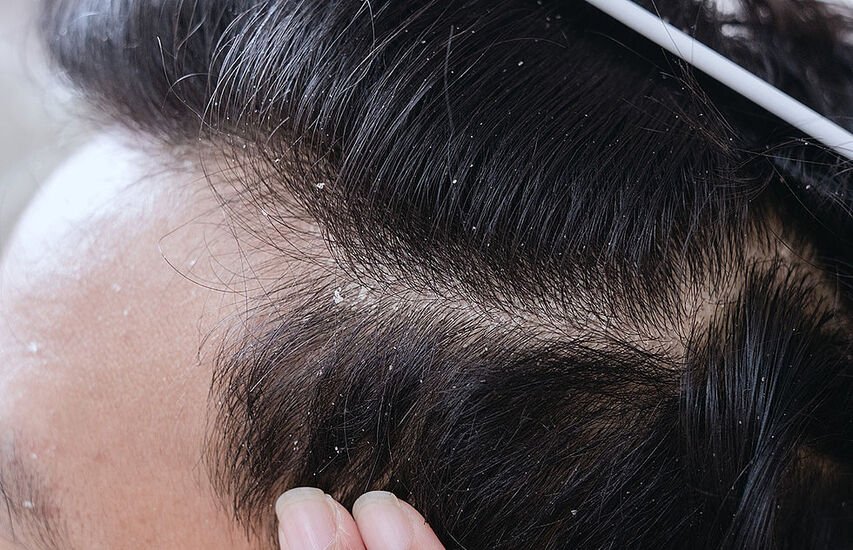
While there is no direct cure for herpes-related hair loss, several treatment options can help reduce the symptoms and promote hair regrowth.
- Antiviral Medications:
To control herpes outbreaks, antiviral drugs such as acyclovir, valacyclovir, and famciclovir are prescribed. These medications help reduce the severity and frequency of outbreaks, which can, in turn, help reduce the risk of herpes-related hair loss. - Hair Restoration Treatments:
- Topical minoxidil (Rogaine) can help stimulate hair regrowth.
- Platelet-rich plasma (PRP) therapy is another option for promoting healthy hair growth.
- Nutritional Support:
Adequate nutrition plays a role in healthy hair growth. Include vitamins, such as biotin, zinc, and vitamin D, to promote stronger hair follicles. - Stress Management:
Managing stress can help minimize hair loss. Consider engaging in activities that lower anxiety, such as yoga, meditation, or talking to a therapist. - Avoidance of Further Scalp Irritation:
Protect the scalp from further irritation. Avoid tight hairstyles, scratching, or applying harsh chemicals to the scalp during an outbreak.
FAQs
1. Can herpes cause permanent hair loss?
No, herpes typically causes temporary hair loss due to scalp inflammation or stress. However, repeated outbreaks may lead to scarring, which can permanently affect hair regrowth.
2. How long does hair loss last after a herpes outbreak?
Hair loss may last a few weeks, depending on the severity of the outbreak and the individual’s response to treatment. Most hair loss from herpes-related outbreaks is temporary.
3. Is there a cure for hair loss caused by herpes?
While there is no cure for herpes-related hair loss, treatments such as antiviral medications, stress management, and hair restoration therapies can help reduce hair shedding and promote regrowth.
4. Does herpes cause patchy hair loss or thinning?
Yes, herpes outbreaks can cause patchy hair loss in areas where the virus affects the scalp. This hair loss is often linked to the inflammation and irritation caused by the outbreak.
Conclusion: Understanding Herpes and Its Impact on Hair Health
Herpes outbreaks can be distressing, not just due to the sores but also because of the impact they can have on your hair. While herpes does not directly cause permanent hair loss, the inflammation and stress it triggers can lead to temporary shedding. By managing outbreaks with antiviral medications and adopting a stress-reducing lifestyle, you can prevent or minimize hair loss related to herpes.
If you’re concerned about herpes-induced hair loss, consult a healthcare professional to explore appropriate treatment options.
Ready To Take Your Next Step:
If you’re experiencing hair loss due to herpes, don’t wait to seek help. Book a consultation with Dr. Uzma Irfan, an ISHRS-certified surgeon, our expert in dermatology and hair restoration, and find a treatment plan tailored to your needs.

